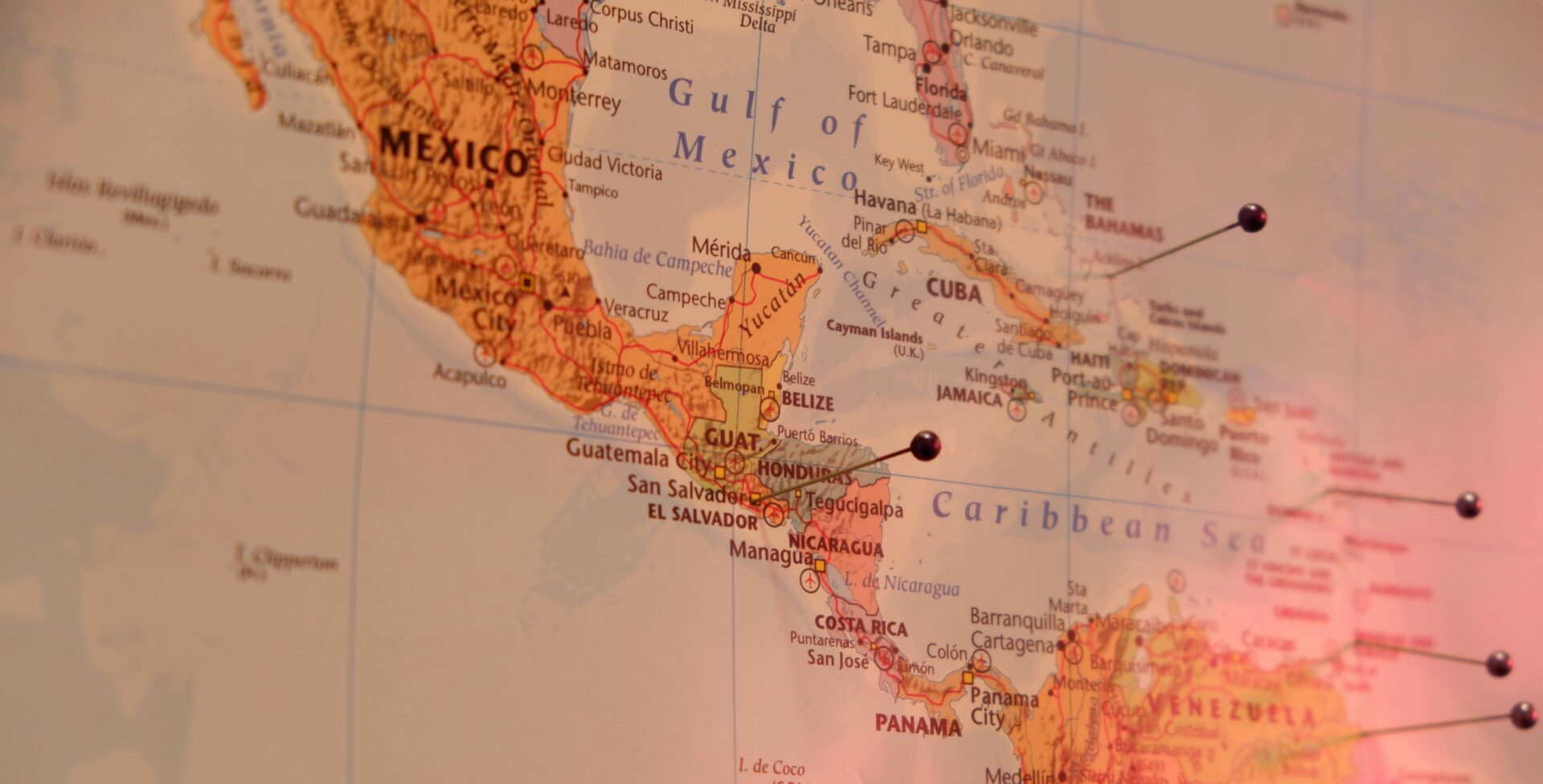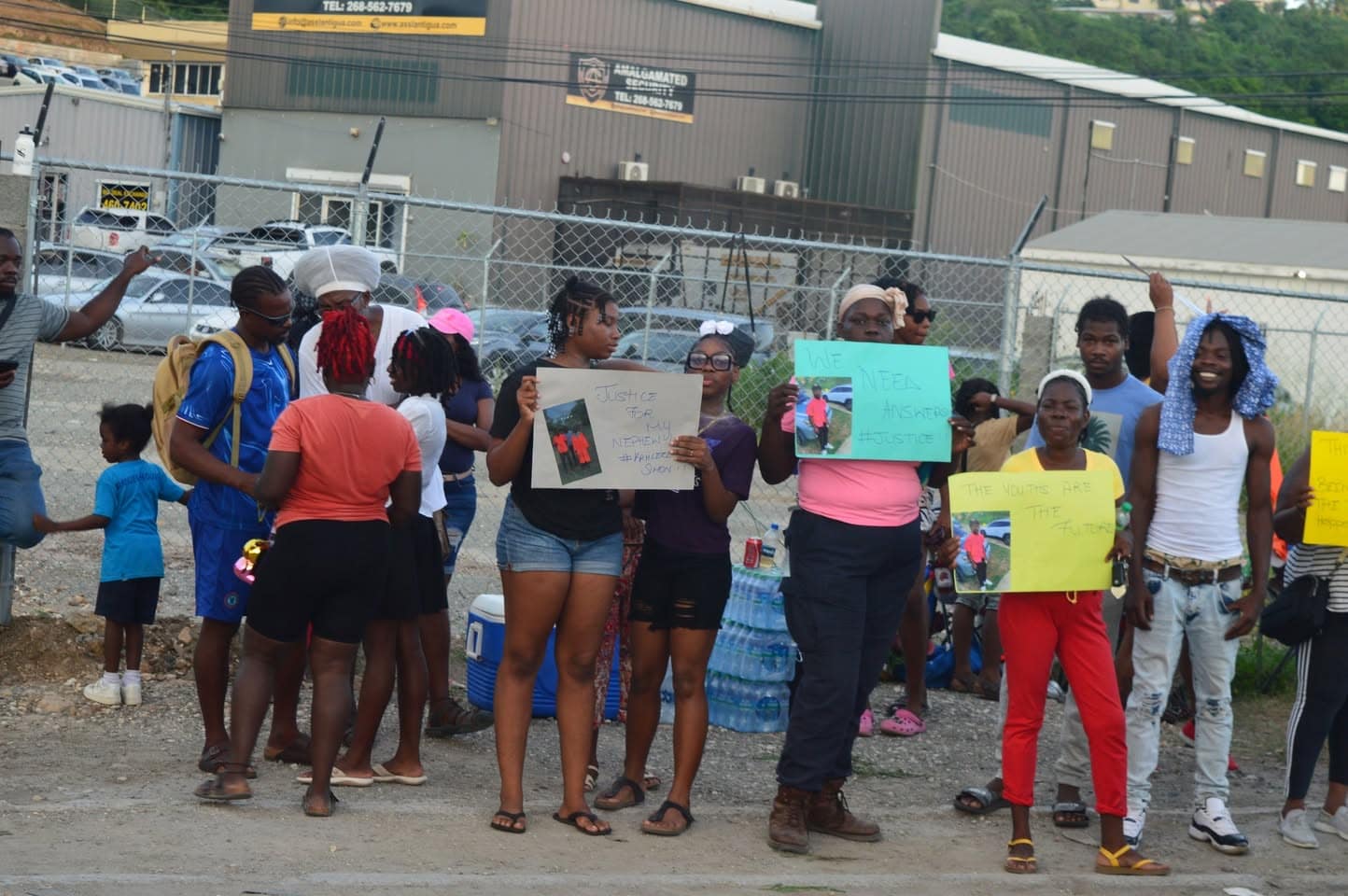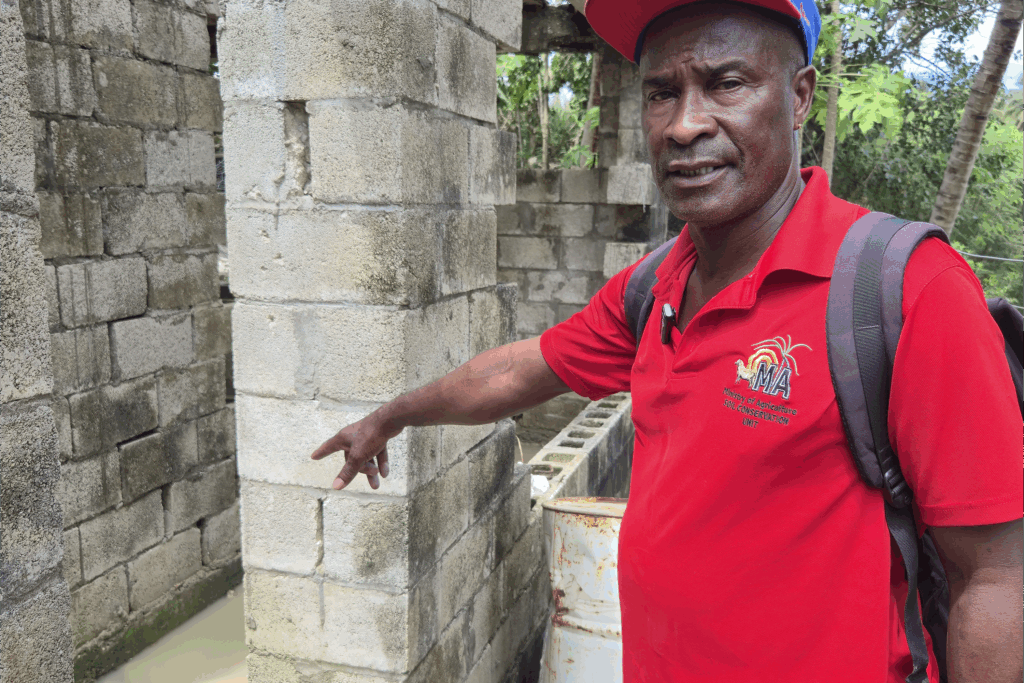The Caribbean Sea, a vital economic and cultural lifeline for the region, has recently become a focal point of geopolitical tension following a series of US military strikes targeting alleged drug-smuggling operations. Since September 2, 2025, the US Southern Command has conducted four strikes in the southern Caribbean near Venezuela, resulting in at least 21 reported deaths. Washington justifies these actions as part of its broader campaign against ‘narcoterrorism,’ specifically targeting the Venezuelan gang ‘Tren de Aragua,’ which it designated a foreign terrorist organization in February 2025. However, these unilateral actions have sparked outrage and concern across the Caribbean, raising fears of escalating militarization and economic instability. The strikes are deeply intertwined with the deteriorating US-Venezuela relations, which have worsened under successive US administrations. Venezuela’s President Nicolás Maduro has declared a state of emergency, while regional leaders, including Colombia’s President Gustavo Petro, have condemned the US actions. The UN Security Council convened an emergency session on October 10, 2025, but meaningful resolutions remain unlikely due to the US veto power. Critics, including Human Rights Watch, have labeled the strikes as extrajudicial killings and violations of international law, questioning the lack of evidence linking the targeted vessels to drug smuggling. The Caribbean Sea, accounting for 27% of the global ocean economy and 18% of regional GDP, is a critical artery for fisheries, tourism, and shipping. Increased militarization threatens these industries, jeopardizing the region’s economic future. Caribbean nations, historically committed to maintaining the region as a ‘Zone of Peace,’ must unite to resist foreign intervention and preserve their shared patrimony. Diplomatic engagement, supported by regional and international allies, is essential to prevent further escalation and ensure the Caribbean Sea remains a source of prosperity, not conflict.
博客
-
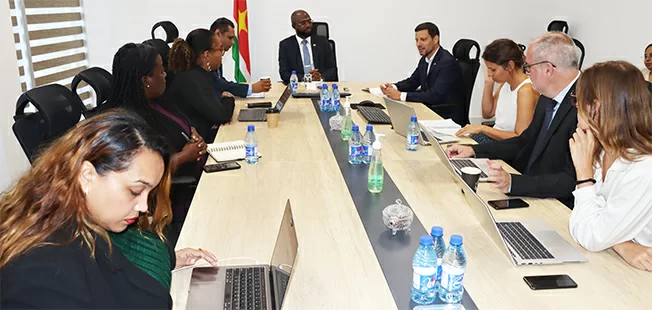
AFD blijft partner in verbetering gezondheidszorg oosten land
In a significant move to bolster healthcare services, Suriname’s Minister of Health, Welfare, and Labour, André Misiekaba, met with a delegation from the French Development Agency (AFD) on Monday. The discussions centered on evaluating the progress of the Marwina Regional Hospital in Albina and exploring further collaborative opportunities. The hospital, operational since 2017, has been pivotal in providing healthcare services in eastern Suriname and is now expanding its capabilities. Key attendees included Director Rakesh Gajadhar Sukul and Project Manager Grätl Petrisie-Blokland. The meeting highlighted persistent challenges such as a shortage of medical specialists and modern equipment, alongside the need for sustainable staffing policies. Minister Misiekaba proposed several recommendations for improvement, including the appointment of a pediatric dentist, expansion of the dialysis center, recruitment of doctors and specialists, and investments in transport facilities between Paramaribo and Albina. The AFD has been actively collaborating with Suriname on projects aimed at epidemic prevention and healthcare in border regions with French Guiana. These joint efforts are enhancing epidemiological control in these areas. The visit underscores the importance of continued cooperation and investment in healthcare to improve service quality, particularly in the country’s interior.
-
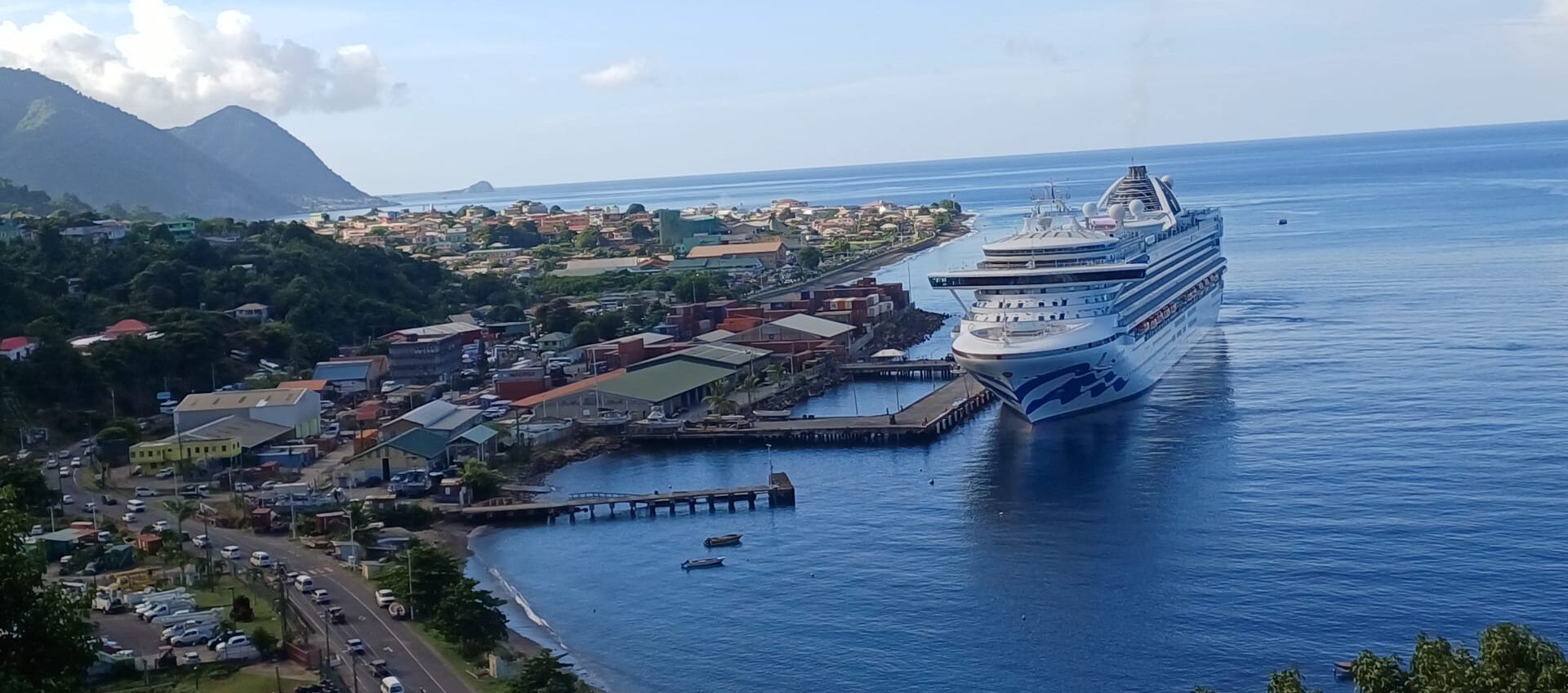
MV Grand Princess kicks off Dominica’s 2025 cruise season
Dominica has officially launched its 2025-2026 cruise season with the arrival of the MV Grand Princess, marking a historic milestone for the island nation. The grand-class cruise ship, owned by Princess Cruises, docked at Woodbridge Bay Port in Fond Cole, signaling the start of what Tourism Minister Denise Charles-Pemberton described as the largest cruise season in Dominica’s history. The season, which began on October 15, is expected to welcome 475,000 cruise visitors and 274 cruise calls, including 13 inaugural visits from renowned international cruise lines such as Celebrity Accent, Majestic Princess, and Queen Victoria. Notably, the return of Disney Magic adds to the excitement. This represents a 38% increase compared to the previous season, underscoring Dominica’s growing appeal as a premier nature destination. Charles-Pemberton attributed this surge to strong partnerships with cruise lines, increased global demand for nature-based tourism, and the government’s commitment to upgrading infrastructure to enhance visitor experiences. In preparation for the season, the Discover Dominica Authority launched the island’s first Chief Experience Officer Training Program, equipping 147 service providers—including taxi operators, tour guides, vendors, and border control officers—with skills in customer engagement, cultural awareness, and emotional intelligence. The minister urged all stakeholders to uphold the highest standards of professionalism and pride, emphasizing that every interaction shapes the world’s perception of Dominica. The season will also feature expanded entertainment and cultural programming at key sites like the Old Market Plaza. The cruise season is set to close on August 27, with a cruise ship expected every two weeks during the summer months. Charles-Pemberton called on the nation to welcome visitors with pride and make this season the most remarkable yet.
-

Caribbean Development Bank and youth agency support mushroom agri-business for young men in St Lucia
In a landmark collaboration, the Caribbean Development Bank (CDB), Saint Lucia’s Youth Economy Agency (YEA), and the Ministry of Agriculture, Fisheries, Food Security, and Rural Development have celebrated the successful completion of the Boys-to-Men Mushroom Agribusiness Employment Pilot Project. This initiative, designed to tackle critical issues of food security and youth unemployment, has empowered 50 young men with essential skills in mushroom farming and business management. The program, which emphasizes environmentally sustainable practices, aligns with Saint Lucia’s broader objectives of sustainable development and food self-sufficiency. Michel Thomas, Senior Operations Officer at CDB, highlighted the project’s dual focus on reducing the nation’s reliance on food imports and creating viable employment opportunities for vulnerable youth. With a contribution of approximately USD74,000 through the Caribbean Technological Consultancy Services program, the CDB has played a pivotal role in making this initiative a reality. Thomas Leonce, Chairman of the YEA, emphasized the project’s transformative potential, stating that it equips young men with entrepreneurial skills and fosters innovative solutions for sustainable development. Implemented across communities such as Gros Islet, Cul De Sac, and Piaye, the project reflects a collaborative effort involving government ministries, trainers, mentors, and local stakeholders. It also supports CDB’s broader Youth Economy Project, which has provided USD6.7 million in loans and grants to young entrepreneurs aged 18 to 35. Michel Thomas reiterated the Bank’s commitment to youth empowerment and agricultural development, underscoring the importance of nurturing resilience and economic opportunity for future generations.
-
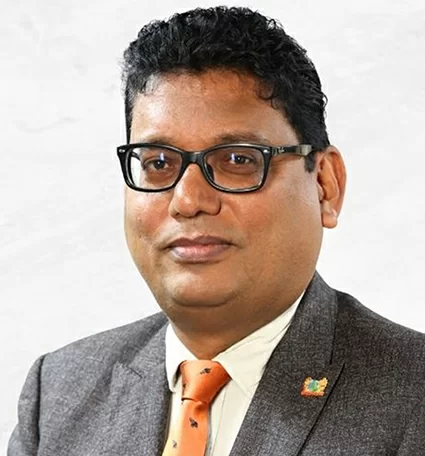
Gajadien: Gratie mag geen politiek instrument worden
Assembly member Asis Gajadien has expressed deep concerns regarding the recent handling of pardon requests submitted to President Jennifer Simons. Gajadien emphasized that the process must be conducted with “utmost care” to safeguard the rule of law and Suriname’s international reputation. He highlighted that Article 109 of the Constitution explicitly requires the president to seek advice from the judge who imposed the sentence or their successor before granting any pardon. “This provision is not a mere formality but a cornerstone of our democratic legal system,” Gajadien stated. “It ensures judicial independence and public trust in fair legal proceedings.” Gajadien further stressed that pardons are exceptional legal remedies, reserved for “extraordinary circumstances involving humanitarian or equity considerations.” He warned against using pardons as political tools or undermining judicial authority. “The manner of application, through political platforms, adds a concerning dimension to this issue,” he noted. Gajadien urged the president to consider not only legal requirements but also societal interests and Suriname’s international credibility when addressing pending pardon requests. He cautioned that premature or inadequately justified pardons could damage the government’s image and send the wrong signal to the international community, which closely monitors Suriname’s commitment to good governance and integrity. “Society deserves the assurance that justice is administered fairly, transparently, and without bias,” Gajadien concluded, calling on the coalition and the president to prioritize the rule of law, social stability, and the moral authority of the office above all else.
-

CARICOM STATISTICS DAY: Secretary General urges unified approach to regional statistics strategy
Caribbean Statistics Day, celebrated on October 15, 2025, coincides with the culmination of the 2024-2025 Year of Statistics in CARICOM, marking a dual milestone. This year also commemorates the 50th anniversary of the Standing Committee of Caribbean Statisticians, highlighting the indispensable role of robust data systems in driving development and resilience across the Caribbean Community. CARICOM emphasized that the commemorative year has focused on standardizing and harmonizing statistical practices among member states. Key initiatives, such as the CARICOM Quality Assurance Framework, the CARICOM Code of Good Statistical Practices, and the Generic Statistical Business Process Model, have been successfully integrated into routine operations, streamlining the entire statistical lifecycle from data collection to dissemination. Currently, CARICOM is advancing its twelve-year Regional Strategy for the Development of Statistics, a comprehensive plan designed to fortify statistical infrastructures and ensure policymakers have access to accurate, timely data. Member governments are actively enhancing legal and institutional frameworks, allocating resources to National Statistical Offices, and prioritizing digital transformation to modernize statistical operations. CARICOM underscores the importance of a unified regional approach to address data gaps and elevate standards. On Caribbean Statistics Day, the Community reaffirmed its commitment to strengthening national and regional statistical processes, guided by the theme, “Improving Lives through Statistics: Strengthening and Innovating Together.” This vision reflects the collective aspiration for progress through collaboration and innovation.
